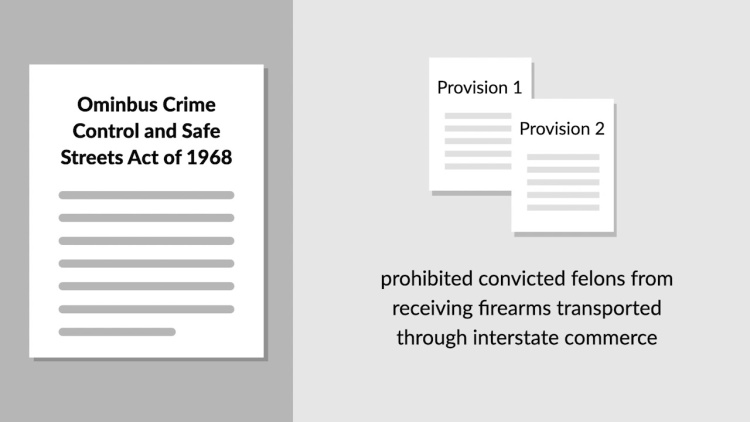United States v. Batchelder
United States Supreme Court
442 U.S. 114 (1979)
- Written by Shelby Crawford, JD
Facts
Batchelder (defendant) was convicted of violating 18 U.S.C. 922 (h), a provision of the Omnibus Crime Control and Safe Streets Act of 1968 (the Omnibus Act). Section 922(h) prohibits a convicted felon from receiving a firearm that has been in interstate commerce. Those convicted of violating 922(h) can be sentenced to any of the penalties listed in 924(a). A second provision of the Omnibus Act, 18 U.S.C. App. 1202(a), also prohibits a convicted felon from receiving a firearm that has been in interstate commerce. Although both provisions prohibit the same conduct, 1202(a) carries lighter penalties with the maximum being 2 years in prison. The district court sentenced Batchelder to five years in prison. This was the maximum penalty allowed under the provision he was convicted of violating. The appellate court upheld Batchelder’s conviction but not the five-year prison sentence he received. Since both provisions prohibited the same conduct, the court interpreted the Omnibus Act to allow only the two-year maximum penalty of the 1202 provision. The court noted that ambiguity in a criminal statute should be interpreted in the defendant’s favor, and that 924(a)’s penalties were repealed by the later addition of 1202(a). The Supreme Court granted certiorari.
Rule of Law
Issue
Holding and Reasoning (Marshall, J.)
What to do next…
Here's why 907,000 law students have relied on our case briefs:
- Written by law professors and practitioners, not other law students. 47,100 briefs, keyed to 996 casebooks. Top-notch customer support.
- The right amount of information, includes the facts, issues, rule of law, holding and reasoning, and any concurrences and dissents.
- Access in your classes, works on your mobile and tablet. Massive library of related video lessons and high quality multiple-choice questions.
- Easy to use, uniform format for every case brief. Written in plain English, not in legalese. Our briefs summarize and simplify; they don’t just repeat the court’s language.





